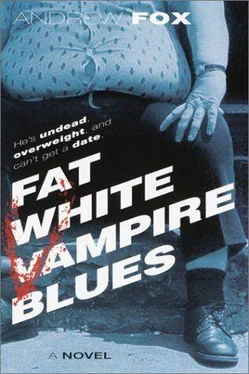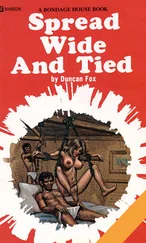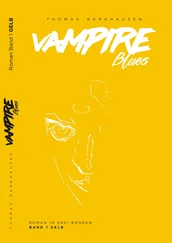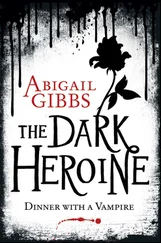Jules braked to a halt in front of a pair of police cruisers and stuck his head out his window. “What’s goin‘ on, Officers?”
A weary-looking cop motioned for him to turn around at the intersection. “Basin’s blocked off from here to Iberville. No through traffic allowed. Some kinda Night Out Against Crime demonstration. Cut over to Rampart Street if you’ve gotta make Canal.”
“Thanks, Officer.”
Jules started to make a left turn across Basin when he spotted what looked like Erato’s cab, parked in a closed gas station. He pulled into the lot, which was crowded with other parked cars. Sure enough, itwas Erato’s cab-there was that dumb-looking pair of sun-faded, pink fuzzy dice hanging from his rearview mirror.
Jules backed out of the jam-packed parking lot and rounded the corner onto Rampart. He found an open space beneath a live oak next to Armstrong Park; not the safest stretch of asphalt in New Orleans by any means, but considering the terrors he’d recently lived through, Jules didn’t give the neighborhood’s dicey reputation a second thought.
He walked past the police station and crossed the line of barricades. At least the presence of so many cops would ensure that he’d be relatively safe from ambush until after he’d had a chance to find Erato and talk with him. Finding him might not be so easy, however. The street and the grassy neutral ground in its middle were occupied by several hundred tightly bunched demonstrators. Most of them were waving their hand-painted signs at the police station and the cordon of cops; smaller groups were giving interviews for the benefit of a large contingent of reporters and cameramen. Other attendees were purchasing hot dogs and soft drinks from vendors who’d set up carts on the sidewalk outside the St. Louis Cemetery.
Now that he was closer, Jules was able to read the protesters’ signs.EQUAL JUSTICE FOR ALL, several read. Others read,MURDER IS MURDER, RICH OR POOR, orJUSTICE FOR HOMELESS VICTIMS. One elderly black lady had loquaciously painted her sign in tiny, carefully formed capital letters,A PINT OF POOR BLACK WOMAN’S BLOOD IS WORTH THE SAME AS A PINT OF RICH WHITE MAN’S BLOOD. Actually, Jules could quibble with this last sentiment; in his experience, a pint of a poor black woman’s blood wasmuch tastier and more filling than a pint of a rich white man’s blood.
Any lighthearted quips immediately evaporated from his mind as soon as he saw the T-shirts the demonstrators were all wearing. They featured the same grainy, laser-copied photo of Bessie that he’d seen on posters in the French Quarter and on shirts in Central City. Only this time they were emblazoned with the captionBESSIE AGAR, GONE BUT NOT FORGOTTEN.
Suddenly Jules heard a familiar voice calling him from the far side of the crowd. “Jules! Hey,Jules!
Whatchu doin‘ round here?“
Erato pushed his slightly pear-shaped form aggressively through the press of bodies, ducking beneath signs and barely avoiding collisions with sauerkraut-and-mustard-laden Lucky Dogs on his way to Jules’s side. “Man-oh-man, you are about thelast body I’d expect to see here,” he said, breathing a little hard after his dash across Basin Street. He grabbed Jules’s paw with both his hands. “You want a T-shirt to wear? Some of the ladies in the group are pretty big, y’know, so maybe I can find one in yo‘ size-”
Jules had the dizzying, unreal feeling that he was a contestant on a new TV game show, a mean-spirited amalgamation ofCandid Camera,This Is Your Life, andThe Twilight Zone. “Forget the T-shirt, Erato. I’m only here ‘cause I been lookin’ for you the last twenty-four hours. I was headin‘ over to the Trolley Stop when I saw your cab. What’s goin’ on here with all these people? And how come you’re involved?”
“It’s National Night Out Against Crime-you knew that, right? All over town, neighborhood associations, homeowners, are gettin‘ together and havin’ barbecues. Makin‘ it clear to the criminal element that the lights areon and somebody’s watchin’ the streets, y’know? But it’s not just people with homes that are the victims of crime, see. An awful lot of the victims of robbery and murder are those folks what don’thave a home-”
“Yeah, yeah, yeah,” Jules said in a rush, “but what does this have to do withyou?”
“You know what it says in Scripture-‘There but for the grace of the Lord goes me’? Well, for a few years now I been a volunteer for this program sponsored by the cab companies and the Social Service Department. It’s called C.A.H.R.T., likego cart. Stands for ‘Cabbies Assisting Homeless Residents with Transportation.’ I pick up homeless folks from the shelters and give ‘em rides to jobs or services or the hospital, all for fifty cents a ride. So over the months I got to know a buncha them pretty well-you’re a cabbie yo’self, you know how folks talk when they’re in your backseat. Some of these folks, I’ll be pickin’ ‘em up for weeks and weeks, and then they’ll up and disappear without a trace. Happened often enough to start worryin’ me. So I decided to help organize this demonstration here, to make the cops pay attention to crime against the homeless.”
Jules felt himself reddening. How many of those “disappearances” had he been responsible for over the past few years? Dozens? He didn’t even want to venture a count. Hearing his buddy talk this way hurt worse than falling on his face from two stories up. He grabbed Erato by the shoulders. “But whyBessie? Why the T-shirts? Why the posters? Why have I been seeing that woman’s face all over town?”
Erato’s thick eyebrows lifted in surprise. “What? You knowed Bessie?”
Jules tried applying the brakes to his emotions. He hoped Erato hadn’t noticed him blushing. “Uh, a little. I gave her a few rides.”
“Oh yeah? Well, Bessie was-is,gotta remember to sayis — a very special lady. That woman had nothing, y’know? But every time I gave her a ride, all she could talk about was what she needed to be doin‘ for other folks. Walking donated groceries to old folks too sick to leave their homes. Watchin’ the kids of moms tryin‘ to work and get off the welfare.” His face darkened. “It just pisses me the fuckoff that the cops pay more attention to statues gettin’ stolen from cemeteries than when some homeless woman like Bessie Agar goes missin‘-like her life ain’t worthshit- ”
Jules felt as small and repulsive as a booger smeared on a dinner plate. Erato must’ve noticed the profoundly distressed look on his friend’s face, because he gripped Jules’s shoulder and said, “Aww, I’m sorry to bring you down like that, man. I shouldn’t have gone off on a tear. Hell, Bessie could still turn up, y’know. There’s still hope.”
“Yeah, she could still turn up,” Jules parroted in a flat, mechanical voice. In his mind’s eye, he saw Bessie’s rich red blood pooling on the plastic sheet covering the floor of his Cadillac, and her skin fading from a rich chocolate brown to a dull, lifeless gray. He saw the gun in his hand, and the neat little hole the small-caliber bullet made in the base of her skull, and how her body floated like a big pool toy before sinking into the murk of Manchac swamp.
A TV reporter standing on neutral ground motioned for Erato to come do an interview. Erato shouted that he’d be over in a minute, then turned back to Jules. “Say, buddy, you said before that you been tryin‘ to track me down. Sorry for bein’ hard to get a hold of-I been real busy makin‘ sure we’d have a good turnout tonight. What can I do for you? I gotta say, it’sgreat to see you up and around. You had me kinda worried with your lyin’-in-the-piano-box shtick. Gladthat nonsense is over and done with. So whatchu need?”
“Nothin‘, Erato. You’re a real busy man tonight.” Turning back in the direction of his car, he couldn’t even meet his friend’s eyes. “Forget about it. It was nothin’ at all. Have a good rally, huh?”
Читать дальше












